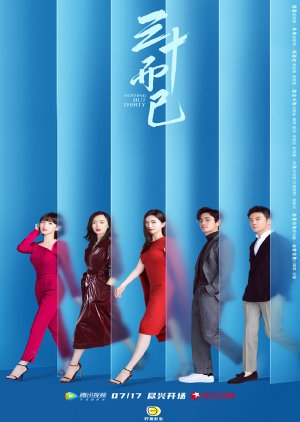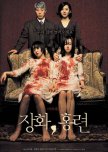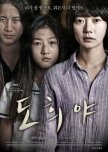
Cette critique peut contenir des spoilers
"This is the story of us three. To be continued."
First time in a while that there is a decent contemporary Chinese drama that didn't lose its footing and get all draggy and boring. Even though it's a 43-episode drama, you can hardly feel it and actually want more! I love its focus on women and how it distributed screen time to develop the story line of each of our leading ladies.Plot: The drama raises good questions and awareness about the expectations put onto women in their 30’s. It is clear that every character has their own flaws and that's what makes them realistic characters. As I watched, I slowly saw each character's personal growth, especially the three leading ladies, in their career and love life. Xiao Qin's growth was especially evident after her divorce and experience with dating a young (clingy) guy when she realized her own mistakes. I anticipated the cheating and betrayal of Xu Huan Shan since I read the synopsis, and honestly, it took longer than I wanted for Gu Jia to find out. Other than that, the plot went on at a good pace throughout the drama and wrapped up well for each character. Most of the loose ends were tied up, in my opinion.
Production: The drama had high quality production and filming that can be seen through the opening song and the nice sets and clothes. The PPL wasn't too terrible or annoying either- pretty smooth. It was just the usual like in most other Chinese dramas. The main characters are all using their own voices too (no cringey dubbing!!)
Cast: Our leading ladies did such an amazing job with their roles that I have only good things to say about them. They delivered their lines and conveyed the emotions spot on and quite naturally (in my opinion), which does not surprise me since they cast well experienced actors. I especially loved Tong Yao who played Gu Jia. She successfully embodied the heartbreak when she found out her trash of a husband cheated on her and showed the growth of her character when she overcame this hurdle. I loved her story line the most, though Man Ni and Xiao Qin's story line were pretty interesting as well.
Music: Nothing really stood out at first, but the ending OST grew on me as I heard it over and over again whenever I finished an episode. The lyrics struck pretty deep and I really like it now. As for the rest, they weren't bad but I wouldn't listen to them after I finish this drama. I did notice that the same singer sang most of the songs (all but one) so that's probably why the songs all sounded pretty similar to me.
Rewatch Value: I don't usually rewatch dramas, especially Chinese dramas (since they are so long) so I just gave it a random score. It was still a good watch for the first time around though.
Cet avis était-il utile?

Nothing But Thirty
I love the Chinese drama "Nothing But Thirty" because three vastly different urban women who have reached their thirties while facing challenges at a crucial stage in their lives, as they leave behind their youthful, carefree 20's to embrace the "adult" life of a 30-year-old, and ultimately decide to take matters into their own hands. Starring Jiang Shuying as Wang Manni (王漫妮), a senior saleswoman. Tong Yao as Gu Jia (顾佳), a homemaker and housewife. The wife of Xu Huanshan. Mao Xiaotong as Zhong Xiaoqin (钟晓芹), an employee of a property company. The wife of Chen Yu.Cet avis était-il utile?

Cette critique peut contenir des spoilers
FAKE growth drama
Wang Manni1. Emotional Protection: Manni's decision to shut herself off from serious relationships might be seen as a protective measure after her painful experience. This could be interpreted as a form of self-preservation rather than growth, as it reflects a fear of vulnerability rather than an active engagement with her personal development.
2. Acceptance vs. Growth: Accepting the possibility of not finding love and focusing on personal contentment can be a valid personal choice. However, it might be perceived as a form of resignation rather than growth if it seems like she has given up on exploring meaningful connections due to past hurt.
3. Narrative Implications: By not depicting Manni actively pursuing or engaging in new relationships, the narrative could be viewed as suggesting that she has not fully grown beyond her past experiences. It might imply that her growth is more about career success and personal satisfaction rather than overcoming personal challenges and exploring new possibilities in love.
4. Character Complexity: True growth often involves facing and overcoming fears and challenges, including those related to personal relationships. If Manni's storyline ends with her retreating from the possibility of love, it could be seen as a lack of resolution in her character arc, leaving her personal growth incomplete.
In Summary: If Manni’s character is portrayed as closing herself off from the possibility of serious love, it could suggest a form of emotional retreat rather than growth. Effective character development typically includes not just overcoming past obstacles but also actively engaging with new possibilities and challenges. If her journey ends with a focus solely on career and personal contentment without addressing or exploring her potential for future relationships, it might be seen as a missed opportunity for portraying comprehensive growth.
XIAOQIN
Xiaoqin’s decision to return to Chen Junsheng and her apparent lack of change might suggest that she did not fully break free from her past or overcome the issues she faced. This can be seen as a failure to achieve the personal growth or resolution that might have been anticipated.
Cet avis était-il utile?

































